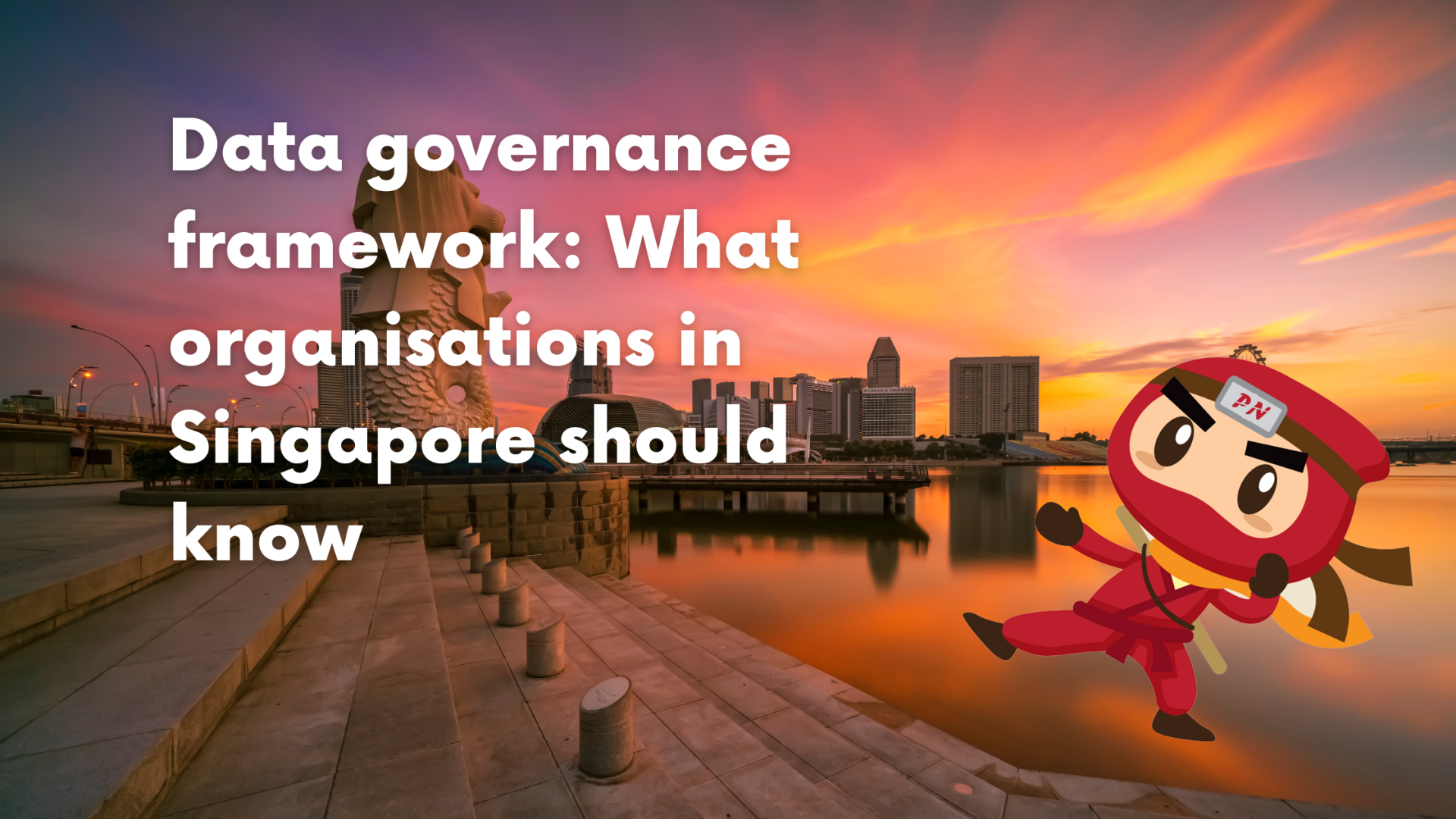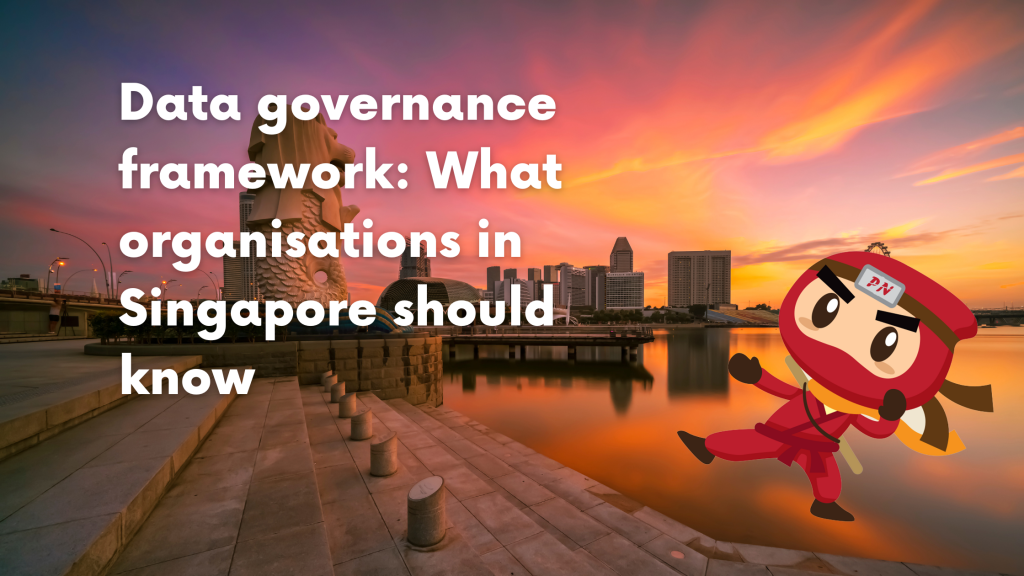KEEP IN TOUCH
Subscribe to our mailing list to get free tips on Data Protection and Cybersecurity updates weekly!







In the past few years, there have been a lot more cybersecurity challenges in Singapore. Threats and attacks on government and private institutions had a big effect on the data and security landscape of the country. Demands for stricter rules about data governance, compliance, and security have skyrocketed, especially during the pandemic.
What should Singapore, especially its public agencies, do to avoid situations like the 2018 data breach of 1.5 million healthcare patients on the SingHealth database or the 2019 leak of personal data of 2,400 Ministry of Defence personnel? What practises and concepts should government agencies consider when putting together a good framework for compliance and governance?
A strong data governance framework is a key part of the compliance landscape for data protection and privacy. Data ownership, metadata management, data cataloging, data quality management, and model governance are all important parts of traditional data governance. Singapore needs to set up data governance programs that help organisations in Singapore to follow the rules about data protection and data sovereignty.
The policies, rules, processes, organisational structures, and technologies that are put in place as part of a data governance program make up a data governance framework. It also talks about the program’s mission, its goals, and how its success will be measured. Governance frameworks should be written down and shared within an organisation so that everyone knows how the program will work right away.
On the technology side, data governance software can be used to automate parts of managing a governance program. Data governance tools are not a required part of a framework, but they help with managing programs and workflows, collaborating, making governance policies, documenting processes, making data catalogues, and other tasks. They can also be used with tools for master data management (MDM), data quality management (DQM), and metadata management.
Also Read: Revised Technology Risk Management Guidelines of Singapore

Data Governance (DG) is the process of managing the availability, usability, integrity, and security of the data in enterprise systems based on internal data standards and policies that also control how the data is used.
Effective data governance makes sure that data is always the same, can be trusted, and isn’t used in bad ways. It’s becoming more important as organisations face new rules about data privacy and use data analytics more and more to improve operations and make business decisions.

Without good data governance, different systems in an organisation might not be able to fix data inconsistencies. For instance, the names of customers may be listed differently in systems for sales, logistics, and customer service. That could make it harder to integrate data and cause problems with data integrity that could affect how well business intelligence (BI), enterprise reporting, and analytics applications work. Also, data errors might not be found and fixed, which would hurt the accuracy of BI and analytics even more.
Poor data governance can also make it harder to follow regulations. That could make it hard for companies to follow the growing number of laws about data privacy and protection, like the PDPA in Singapore. A typical enterprise data governance program includes the creation of common data definitions and standard data formats that are used in all business systems. This makes data more consistent for both business and compliance purposes.

Since Data Governance stresses the management of personal data, it is crucial that an organisation has a Data Protection Officer (DPO) to oversee how the data is managed. It is important that each organisation has an officer who ensures that at each step of the way, there will be no room for data mismanagement. If they do not have one, they can employ DPO-as-a-service providers such as Privacy Ninja.
DPOs complement organizations’ efforts to ensure that data management is in compliance with the PDPA and that there are no instances of data leaks or any problems organisations face nowadays due to the lack of security arrangements.
Also Read: Why cybersecurity is important for businesses in Singapore